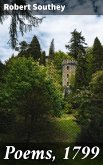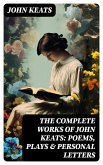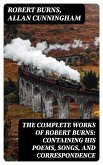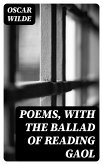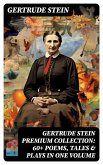In "Poems, 1799," Robert Southey presents a rich tapestry of themes that traverse nature, love, and the human experience, all intricately woven with his signature Romantic style. Southey's use of vivid imagery and emotional depth elevates his poetry, showcasing a keen sensitivity to the interplay of personal feelings and societal issues. The collection embodies the characteristics of the early Romantic movement, aligning with contemporaries like Wordsworth and Coleridge, while also revealing Southey's unique voice and perspective. With profound meditations on life and a deliberate attention to meter and form, this collection stands as a remarkable contribution to the literary canon of its time. Robert Southey was not only a prominent poet but also a noted historian and biographer, which enriched his poetic endeavor with a wealth of knowledge and life experiences. Growing up within a politically charged environment, Southey was deeply influenced by revolutionary ideals and the transformative power of nature, themes he often explored in his works. His friendships with other Romantic poets, as well as his role as Poet Laureate, further shaped his poetic trajectory, culminating in the creation of this poignant collection. Readers seeking to immerse themselves in the early Romantic ethos will find "Poems, 1799" an enlightening experience. Southey's exploration of emotional depth and societal awareness invites readers to reflect on both personal and universal themes. This collection is a testament to the power of poetry as a means of grappling with the complexities of life, making it an essential read for admirers of Romantic literature.
Dieser Download kann aus rechtlichen Gründen nur mit Rechnungsadresse in A, B, BG, CY, CZ, D, DK, EW, E, FIN, F, GR, H, IRL, I, LT, L, LR, M, NL, PL, P, R, S, SLO, SK ausgeliefert werden.



